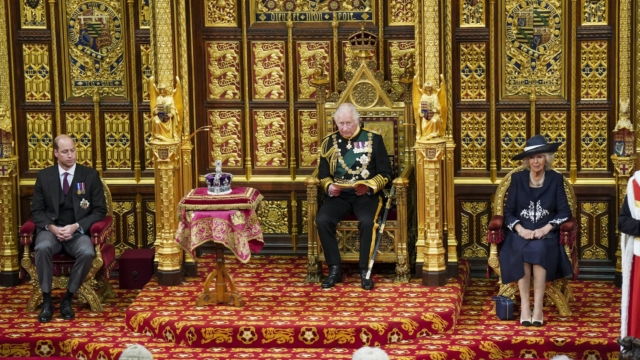Attached a copy of the lobby pack that supports the Queen’s speech. Here are some…
COVID-19 Update 5th November 2020
- Air Corridor Update
DFT has announced that the following countries will be removed from the list of exempt countries and territories from 04:00 on Saturday 7th November
-
- Germany
- Sweden
They also point out that due to the lockdown
-
- it’s no longer permitted to travel for holidays, with those in breach of the rules facing penalties starting at £200 and rising to a maximum of £6,400
- inbound international travel will continue to be governed by the travel corridor approach; must also follow the UK’s domestic regulations
- Extension of the CJRS
The policy paper that under pins today’s announcement of the extension of the CJRS has been published. In contains details on:
-
- eligibility criteria for employers and employees
- what employers will need in order to claim
- reference data to calculate those claims
Some Key Points are:
-
- Employees don’t have to have been furloughed previously
- The key eligibility criteria is that the employer must have made a PAYE Real Time Information (RTI) submission for the employee to HMRC between the 20 March 2020 and 30 October 2020
- Employees that were employed and on the payroll on 23 September 2020 who were made redundant or stopped working for their employer afterwards can be re-employed and claimed for
- Employers will have to pay NI and Pension contributions
- The calculation rules will remain as they were previously
- For those on a fixed salary – the 80% of the wages payable will be based on the last pay period ending on or before 30 October 2020
- For employees whose pay varies – the 80% of the average payable between (these dates are inclusive) the start date of their employment or 6 April 2020 (whichever is later) and the day before their CJRS extension furlough periods begins
It is important to note that the paper states that HMRC will publish the full guidance on 10 November 2020.
- Self-Employment Income Support Scheme Grant Extension
Similarly, the policy paper on the extension of the SEISS has also been published. The key eligibility criteria are that you:
- have been previously eligible for the Self-Employment Income Support Scheme first and second grant (although they do not have to have claimed the previous grants)
- declare that they intend to continue to trade and either:
- are currently actively trading but are impacted by reduced demand due to coronavirus
- were previously trading but are temporarily unable to do so due to coronavirus
The extension will last for 6 months, from November 2020 to April 2021. Grants will be paid in 2 lump sum instalments each covering a 3 month period.
The third grant will cover a 3 month period from 1 November 2020 until 31 January 2021. The Government will provide a taxable grant calculated at 80% of 3 months average monthly trading profits, paid out in a single instalment and capped at £7,500 in total.
- National Restrictions Poster
The government has published a new poster on the main rules and restrictions that apply over the next month which is a good resource for businesses to share with staff and customers
- Update to Visitor Economy Primary Guidance
The primary guidance for visitor economy businesses (Working Safely During Coronavirus) has been updated to reflect the new rules and restrictions that have come into effect today. Of note are the following:
- People should avoid all non-essential travel by private or public transport. Essential travel includes, but is not limited to travelling to work where your workplace is open or you cannot work from home; and travelling to education or for caring responsibilities.
- Overnight stays and holidays away from primary residences will not be allowed – including holidays in the UK and abroad. This includes staying in a second home or caravan, or people staying with anyone they do not live with or are not in a support bubble with. There are specific exceptions, for example if people need to stay away from home (including in a second home) for work or education purposes.
- When travel is necessary and staying in hotels and other guest accommodation required, we expect people to act responsibly, in line with government regulations and guidance.
- At the time that restrictions are brought in, if people are currently on holiday and it is not reasonable for them to curtail their stay, they should finish their holiday as planned. People should return home as soon as practical and comply with the ‘stay at home’ requirements whilst in holiday accommodation in the meantime. Further information can be found in the guidance for Hotels and Other Guest Accommodation.
- People who need to travel abroad before 2 December (and are legally permitted to do so, for example, because it is for work), should look at the rules in place at their destination, the Foreign, Commonwealth and Development Office (FCDO) travel advice and the current travel corridor list.
- International visitors may continue to enter the country, subject to the existing Travel Corridor rules. Whilst here, international visitors should adhere to all regulations and guidance.
https://www.gov.uk/guidance/working-safely-during-coronavirus-covid-19/the-visitor-economy
- Weekly Coronavirus Report
This week’s PHE national flu and COVID-19 surveillance report has been published with the usual wealth of data on trends in coronavirus infections. The key points this week are:
-
- Case detections decreased slightly compared to last week though this is likely to be driven by reduced testing over the half term period.
- Case rates have slightly fallen in those aged 5 to 39, however continue to increase in those aged 40 and over.
- The highest case rates were seen in those aged 20 to 39, with a rate of 333.6 per 100,000 population for those aged 20 to 29 and 289.5 per 100,000 population for those aged 30 to 39.
- Case rates per 100,000 were highest in the North East, North West and Yorkshire and the Humber.
- Take Care on the Coast
The Maritime and Coastguard Agency has issues a notice asking people to take care if they are visiting the coast for exercise during the lockdown period.
https://www.gov.uk/government/news/restrictions-in-england-from-5-november-take-care-at-the-coast


